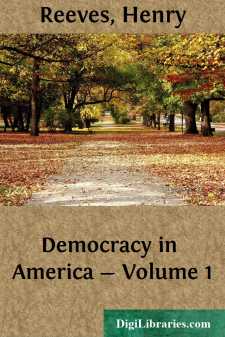Categories
- Antiques & Collectibles 13
- Architecture 36
- Art 48
- Bibles 22
- Biography & Autobiography 813
- Body, Mind & Spirit 141
- Business & Economics 28
- Children's Books 12
- Children's Fiction 9
- Computers 4
- Cooking 94
- Crafts & Hobbies 4
- Drama 346
- Education 46
- Family & Relationships 57
- Fiction 11826
- Games 19
- Gardening 17
- Health & Fitness 34
- History 1377
- House & Home 1
- Humor 147
- Juvenile Fiction 1873
- Juvenile Nonfiction 202
- Language Arts & Disciplines 88
- Law 16
- Literary Collections 686
- Literary Criticism 179
- Mathematics 13
- Medical 41
- Music 40
- Nature 179
- Non-Classifiable 1768
- Performing Arts 7
- Periodicals 1453
- Philosophy 64
- Photography 2
- Poetry 896
- Political Science 203
- Psychology 42
- Reference 154
- Religion 513
- Science 126
- Self-Help 83
- Social Science 81
- Sports & Recreation 34
- Study Aids 3
- Technology & Engineering 59
- Transportation 23
- Travel 463
- True Crime 29
Henry Reeves
Henry Reeve (1813–1895) was an English translator and editor, best known for his translation of Alexis de Tocqueville's "Democracy in America" into English. Reeve worked as the editor of the "Edinburgh Review" for over forty years, shaping much of British intellectual discourse during the 19th century. He also held significant positions in government, serving as Registrar of the Privy Council. Reeve's translations and editorial work helped bridge French political thought with the English-speaking world, making him a prominent figure in 19th-century literary and political circles.
Author's Books:
Sort by:
by:
Henry Reeves
Introduction Special Introduction By Hon. John T. Morgan In the eleven years that separated the Declaration of the Independence of the United States from the completion of that act in the ordination of our written Constitution, the great minds of America were bent upon the study of the principles of government that were essential to the preservation of the liberties which had been won at great cost and...
more...
by:
Henry Reeves
Chapter I: Philosophical Method Among the Americans I think that in no country in the civilized world is less attention paid to philosophy than in the United States. The Americans have no philosophical school of their own; and they care but little for all the schools into which Europe is divided, the very names of which are scarcely known to them. Nevertheless it is easy to perceive that almost all the...
more...



